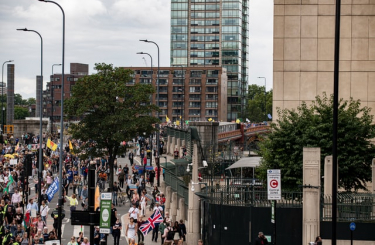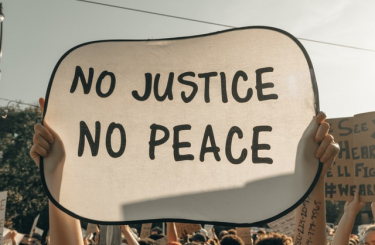Related



We’ve faced crises before, but the learning doesn’t always “stick” when we get back to business as usual. This blog from London Funders asks: could trust, relationships and ambition be the difference this time?
We’ve been involved in large-scale funder collaborations before, at times when it felt the world was changing so much that we couldn’t go back to previous ways of working, and excellent learning reports showed us a better future beyond the crisis. But we’ve often underestimated the “pull” of business-as-usual, or the complexities of the situations we’re navigating, and struggled to put this learning into practice – what makes us more optimistic about the potential to learn from our response to covid-19? Trust, relationships and ambition…
Trust
Before the crisis one of our members reflected that the ways we act in our professional lives can be in sharp contrast to how we would behave in our personal ones. If a friend asks us for sponsorship money for a charity they have selected, or a loved one asks us for financial help to get through a crisis, we don’t ask them to fill in an application, conduct due diligence on the charity or the need, and then ask them to report back on the impact of the money we gave – we work on trust. But stepping into our professional lives, we often put our trust in paperwork and process over people – a theme that was explored at the Big Network Day back in February. But now the boundaries between professional and personal are blurred like never before – we are talking to each other from our homes; meeting people’s partners, children, pets; seeing the contrast between cramped conditions and living in a library. Working through the pandemic has brought a new meaning to “bringing your whole self to work”, and potentially opened up new opportunities for us to engage as equals, and to better match our personal values and approaches with the way we approach our work. We’ve had to trust each other more – through really listening to the voices of communities shaping emergency funding programmes, to trusting the due diligence and networks of other funders we’ve worked alongside, to trusting ourselves and our capacity to do the right thing – and this trust needs to be at the heart of how we think about working together beyond crisis. We need to hold on to these feelings, so that when we do eventually go back to our offices we don’t leave this learning at home.
Relationships
At times of crisis, the importance of relationships is always clear – personally, in terms of who we support and who supports us; and professionally, through being able to work with colleagues to tackle issues that are bigger than any of our organisations can face alone. For London Funders we’ve seen this through being able to bring together over 60 funders to work on the London Community Response, which builds on many years of developing relationships across the funding community. We’ve also seen how a relationship-based funding approach is core to a crisis response. Through the outreach and community-focused approach of funders after the Grenfell Tower fire, funding flowed to the groups best-placed to respond, not just those who were already well-resourced – 55% of the grants (representing 58% of the money) went to groups who were BAME-led, in contrast to previous patterns of funding. We’ve adapted that approach now for the virtual world, working with the equity and inclusion partners who wrote yesterday’s “towards justice” blog, strengthening relationships so that we focus on underlying causes of structural inequality, not just for the crisis but for thinking of the future. We also know that the relationships beyond funders and civil society are critical too – we’ve been working with agencies across London as part of the strategic coordination group for covid-19, and hope that these relationships will continue for the long-term too, recognising that “resilience” isn’t just about responding to a crisis, but is about rebuilding and recovering over many years – something reflected in our “towards renewal” blog on Monday. Through the crisis we’ve all developed new relationships, and strengthened existing ones – and because of the scale of the response this time these relationships are across more sectors, areas and themes than before. It’s hard, therefore, to conceive that we won’t sustain these for the long term, ensuring we can work together to implement learning and change the system beyond crisis.
Ambition
Whilst the current crisis has brought loss, distress and uncertainty, it has also been a time of coming together – from the surge of neighbourliness, volunteering and clapping for key workers, to the shared commitments of the funding community seen in the 350+ funders who signed up to our covid-19 funder statement to say that #WeStandWithTheSector. It feels that our ambitions to work together, to take responsibility for sharing learning, to understand the complexity of problems and solutions, and to act, are palpable in the conversations we’re having across sectors. We’re also connected to places where that ambition can be realised – our Chair, David Farnsworth, and one of our Trustees, Bharat Mehta, are on the London Transition and Recovery Boards – and are committed to engaging diverse voices in shaping the future. Many of these are not new ambitions – before the crisis we were working on issues of power, equity, and voice – but the crisis has perhaps given new energy and impetus for change. It’s hard now to go to a meeting where someone doesn’t talk about “bouncing back better” – maybe now, with greater trust, stronger relationships, and clear ambitions, we can take the learning from crisis and build our civil society so that it is truly responsive to, reflective of, and a champion for people and communities in London. We look forward to playing our part in making that happen


